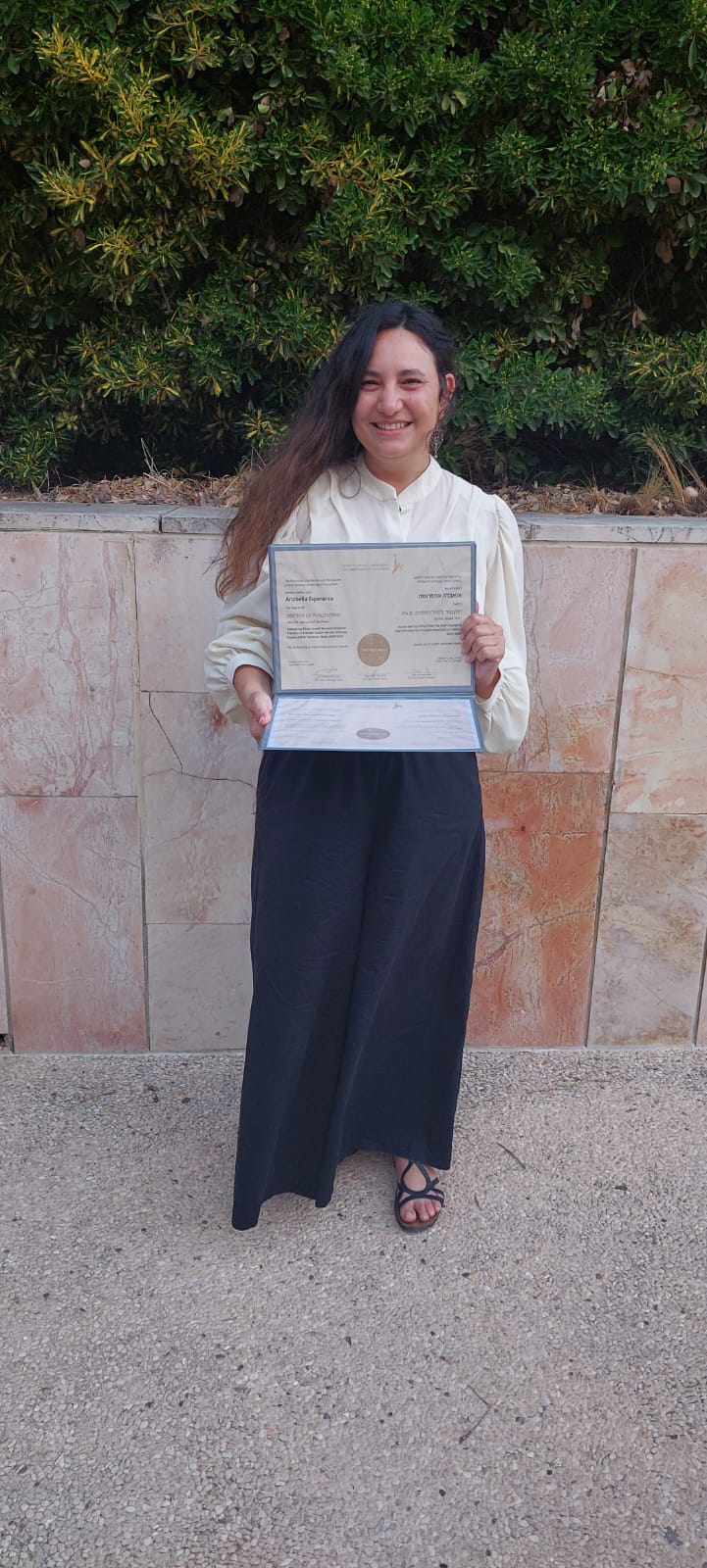Anabella Esperanza obtiene el Doctorado por su tesis dirigida por Katja Smid (ILC) en la Universidad hebrea de Jerusalén
Anabella Esperanza se doctora en la Universidad hebrea de Jerusalén tras defender su tesis bajo la dirección de Katja Smid (ILC). El título de la tesis ha sido: Embodying Ritual: Jewish Women’s Religious Practices and Health Care in the Late Ottoman Empire and its Successor States (1839-1922)
Dr. Anabella Esperanza completed her doctoral dissertation: “Embodying Ritual: Jewish Women’s Religious Practices and Health Care in the Late Ottoman Empire and its Successor States (1839-1922),” in the Department of Middle Eastern and Islamic Studies at the Hebrew University of Jerusalem on February 1, 2024, under the supervision of Prof. Liat Kozma (The Hebrew University of Jerusalem) and Dr. Katja Smid (ILC-CSIC). Esperanza received her certificate in the PhD graduate convocation, which took place on June 3, 2024, at The Hebrew University’s amphitheater.
During her graduate studies, Esperanza was a PhD fellow at the European Research Council-funded research group, “Regional History of Medicine in the Modern Middle East,” headed by Prof. Liat Kozma at the Hebrew University of Jerusalem, held a scholarship from the Rotenstreich Fellowship, and participated in the Jack, Joseph and Morton Mandel School for Advanced Studies in the Humanities’s community at The Hebrew University.
Anabella Esperanza is currently a Post-Doctoral Fellow at the Dan David Society of Fellows at Tel Aviv University. During the next academic year, she will be a fellow at the Herbert D. Katz Center for Advanced Judaic Studies, participating in the year-group “Jews and Health.”
Esperanza’s dissertation, “Embodying Ritual: Jewish Women’s Religious Practices and Health Care in the Late Ottoman Empire and its Successor States (1839-1922),” charts a corporeal history of Jewish women in late Ottoman and post-Ottoman spaces concentrating on the three largest centers of eastern Sephardi Jewry—Istanbul, Salonica, and Izmir. It examines Jewish women’s ritual life and daily practices, and their transformations upon encountering the emerging Ottoman public health system and biomedical care. Through an analysis of a wide range of primary sources in Judeo-Spanish, Hebrew, French, English, and Turkish, she studied how women confronted the age of Ottoman reform in the late Ottoman Empire during the modernization of the state. It focuses on central events and experiences in the female lifecycle: childbirth, contraception, and abortion—as well as everyday and ritual practices related to menstruation and ritual impurity. It examines the emergence of new bio-medical techniques, approaches, practitioners, spaces, and their coexistence with existent medical systems in the cities under study, revealing the multiple ways in which men and women negotiated between existing bodily practices and new biomedical ones. Esperanza’s study demonstrates that through their bodies, Jewish women could command and monitor their own experiences of continuity and adjustment to Jewish emerging perceptions and new Ottoman policies of sexuality and reproduction. Esperanza’s dissertation builds on and contributes to the history of women’s healthcare and the politics of reproduction, especially in non-Western cultures, the sociocultural history of Jews in Middle Eastern contexts, and the history of Jews and the state.



